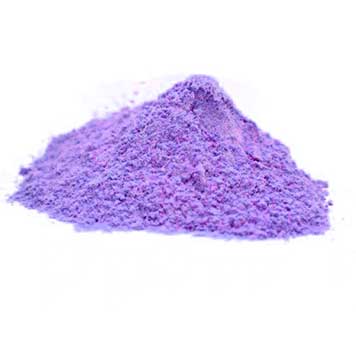
isopropyl alcohol
Isopropyl Alcohol A Versatile Chemical Compound
Isopropyl alcohol, commonly known as rubbing alcohol, is a colorless, flammable chemical compound with a distinctive odor. Its chemical formula is C3H8O, and it is an isomer of propyl alcohol. This versatile compound has found myriad applications in both industrial and household settings, making it an indispensable item in many people's lives.
Chemical Properties and Structure
Isopropyl alcohol consists of a branching structure with three carbon atoms, hence the name propyl. The two methyl groups attached to the middle carbon atom give isopropyl alcohol its unique properties. It has a boiling point of approximately 82.6°C and a density of 0.785 g/cm³, making it relatively light and easily vaporized. Its ability to dissolve both polar and nonpolar compounds allows it to be an effective solvent in various applications.
Manufacturing Process
Isopropyl alcohol is primarily produced through the hydration of propylene, a byproduct of petroleum refining. The reaction is catalyzed in two main ways indirectly through a sulfuric acid pathway or directly via a catalytic process. The products of these reactions undergo distillation to purify the final isopropyl alcohol, which is typically around 70% to 99% pure for commercial use.
Household Uses
One of the most recognizable uses of isopropyl alcohol is as a disinfectant. Its antimicrobial properties make it effective against a broad spectrum of microorganisms, including bacteria, viruses, and fungi. In concentrations ranging from 60% to 90%, isopropyl alcohol is commonly used to sanitize surfaces, instruments, and even skin before medical procedures. This characteristic has made it a staple in homes, hospitals, and laboratories.
isopropyl alcohol

In addition to its disinfecting capabilities, isopropyl alcohol is an excellent cleaner. It is commonly used to remove grease, oils, and adhesives from various surfaces, including glass, metal, and plastic. Many people keep a bottle of rubbing alcohol in their homes for quick clean-ups or as a spot remover for stains.
Industrial Applications
Beyond its household uses, isopropyl alcohol plays a crucial role in various industrial applications. It is widely used as a solvent in the manufacture of paints, coatings, inks, and varnishes, as it helps to improve consistency and application properties. Additionally, isopropyl alcohol serves as an intermediate in the synthesis of various chemicals, including acetone and isopropyl acetate.
In the electronics industry, isopropyl alcohol is invaluable for cleaning printed circuit boards and other sensitive equipment. Its fast evaporation rate ensures that no residue is left behind, which could interfere with electrical connections and performance.
Safety and Precautions
Although isopropyl alcohol is useful, it is essential to handle it with care. It is highly flammable and should be used in well-ventilated areas away from open flames or sparks. Ingesting isopropyl alcohol can be toxic and potentially fatal, so it must be stored safely out of reach of children and pets. Proper personal protective equipment, such as gloves and goggles, is advisable when handling the substance for prolonged periods.
Conclusion
Isopropyl alcohol is a remarkable compound that exemplifies the blend of utility and versatility in the chemical world. From its role as a household disinfectant and cleaner to its critical applications in various industries, isopropyl alcohol is an unsung hero in our daily lives. As we continue to discover new uses for this compound, its significance in both personal care and industrial processes will surely grow, cementing its status as a valuable tool in our modern world.
-
Pure Sodium Dichloroisocyanurate Dihydrate | Powerful DisinfectantNewsAug.29,2025
-
Industrial Chemicals: Quality & Purity for Every IndustryNewsAug.28,2025
-
Nitrile Rubber Honoring Strict Production StandardsNewsAug.22,2025
-
Aspartame Ingredients Honoring Food Safety ValuesNewsAug.22,2025
-
Fertilizer for Balanced Plant NutritionNewsAug.22,2025
-
Cyanide Gold Processing with High Purity AdditivesNewsAug.22,2025
-
Formic Acid in Textile Dyeing ApplicationsNewsAug.22,2025
Hebei Tenger Chemical Technology Co., Ltd. focuses on the chemical industry and is committed to the export service of chemical raw materials.
-

view more DiethanolisopropanolamineIn the ever-growing field of chemical solutions, diethanolisopropanolamine (DEIPA) stands out as a versatile and important compound. Due to its unique chemical structure and properties, DEIPA is of interest to various industries including construction, personal care, and agriculture. -

view more TriisopropanolamineTriisopropanolamine (TIPA) alkanol amine substance, is a kind of alcohol amine compound with amino and alcohol hydroxyl, and because of its molecules contains both amino and hydroxyl. -

view more Tetramethyl Thiuram DisulfideTetramethyl thiuram disulfide, also known as TMTD, is a white to light-yellow powder with a distinct sulfur-like odor. It is soluble in organic solvents such as benzene, acetone, and ethyl acetate, making it highly versatile for use in different formulations. TMTD is known for its excellent vulcanization acceleration properties, which makes it a key ingredient in the production of rubber products. Additionally, it acts as an effective fungicide and bactericide, making it valuable in agricultural applications. Its high purity and stability ensure consistent performance, making it a preferred choice for manufacturers across various industries.





